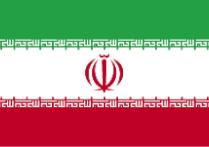WASHINGTON -- Eleven U.S. states have adopted legislation to divest public pension funds from companies with financial ties to Iran's petroleum, defense, and nuclear sectors in an attempt to persuade Iran to give up its uranium enrichment program and alleged sponsorship of terrorism. Almost 20 more states are considering similar legislation to supplement existing federal and international sanctions. This is the first time that state investments have been leveraged for nonproliferation goals. During the 1980s, anti-apartheid activists urged state and local authorities and some universities to divest holdings from companies invested in or doing business with South Africa. During the 1990s, humanitarian activists persuaded Massachusetts to divest from companies "doing business with" Myanmar. More recently, almost 30 states passed legislation to divest from companies with investments in or engaged in trade with Sudan. The Iran case is unique, however, because divestment legislation explicitly references Iran's alleged sponsorship of terrorists and its uranium enrichment program. Since the 2003 discovery of Iran's clandestine uranium enrichment program, the U.N. Security Council has imposed three rounds of sanctions freezing the finances and limiting the travel of prominent members of the nuclear and ballistic missile programs. Enriched uranium can fuel nuclear reactors and provide the explosive core for a nuclear weapon.
U.S. States Continue to Divest from Businesses Tied to Iran

